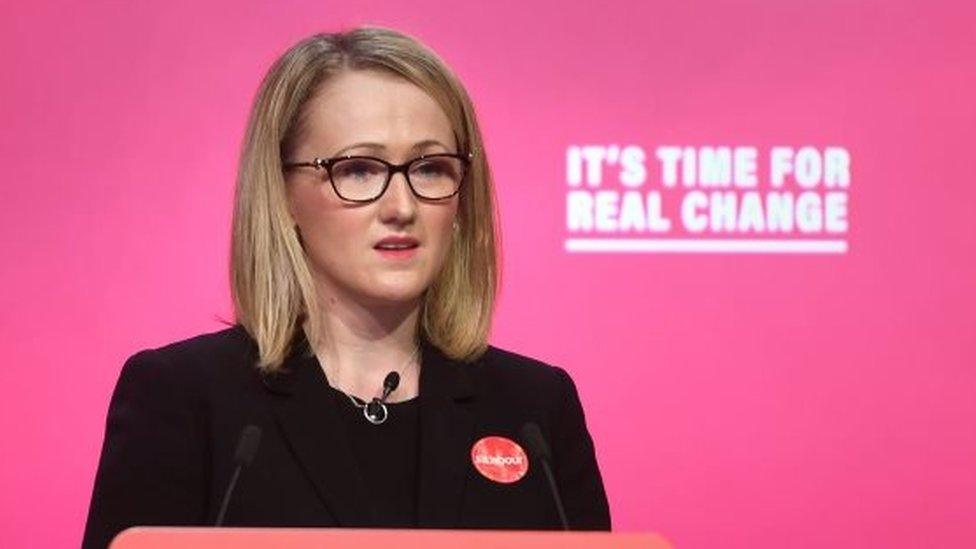Down's syndrome: Campaigners say abortions 'need 24-week limit'
- Published
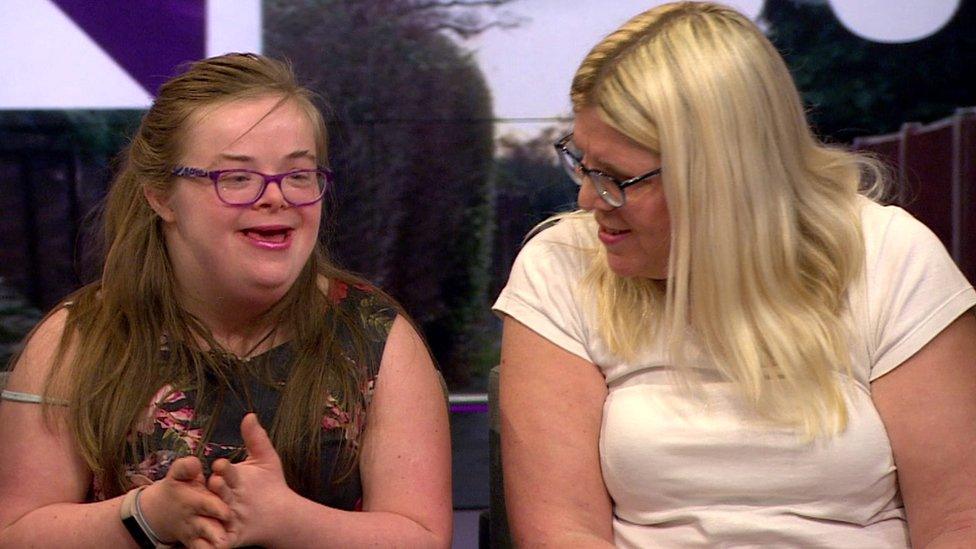
Heidi Crowter with her mother Liz
A law allowing parents to terminate pregnancies where the foetus has Down's syndrome at any time up until its birth should be changed, campaigners say.
They have written to Health Secretary Matt Hancock saying all non-fatal disabilities should be subject to the standard 24-week abortion limit.
Heidi Crowter, who has the condition, said the law was "deeply offensive".
The government said any decision to terminate "must rest on the judgement of the woman and her doctors".
'Unloved and unwanted'
The Down's Syndrome Association estimates about 40,000 people in the UK live with the condition - which is caused by the presence of an extra chromosome in a baby's cells.
Ms Crowter told the BBC's Victoria Derbyshire programme the current law, contained within the 1967 Abortion Act, made her feel "unloved and unwanted".
She said her life was as valuable as someone who does not have Down's syndrome.
Her mother, Liz Crowter, called for the law to be updated to recognise "all babies in the womb are treated the same".
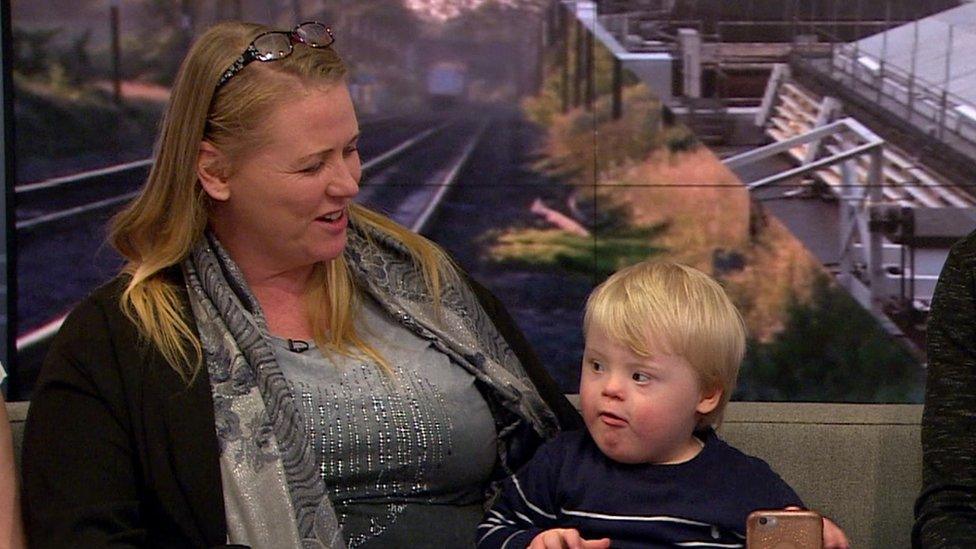
Cheryl Bilsborrow with her son Hector
Cheryl Bilsborrow, whose two-year-old son Hector has Down's syndrome, described the present law as "downright discrimination".
She said, as an older mother, she had felt pushed into taking a test to detect if her baby would likely have the condition.
Then, she added, she felt "pressured to terminate", saying she was offered an abortion at full term, three days before giving birth to Hector.
Ms Bilsborrow said she was told by a medical professional: "You do know we still terminate babies with Down's syndrome at 38 weeks?".
She told the programme: "I was completely blown away, shocked and disgusted."
She described Hector as a child who was "gorgeous" and loved.
"All babies - and children - should be treated equal," she added.
The Department of Health and Social Care told the BBC "any decision to terminate must rest on the judgement of the woman and her doctors.
"Only when two doctors both agree there is a risk a child will be born with a serious abnormality can an abortion take place outside the 24-week limit," it added.

What is the abortion law in England, Scotland and Wales?
Abortions can take place in the first 24 weeks of pregnancy in England, Scotland and Wales.
However, they have to be approved by two doctors. They must agree having the baby would pose a greater risk to the physical or mental health of the woman than a termination.
Abortions were illegal before the introduction of the 1967 Abortion Act, which initially allowed them to take place up to 28 weeks. This was reduced to 24 weeks in 1990.
Abortions after 24 weeks are allowed only if:
The woman's life is in danger
There is a severe foetal abnormality
The woman is at risk of grave physical and mental injury
Since 2018, women in England have been allowed to take the second of two early abortion pills at home, rather than in a clinic. This brings the rules in line with Scotland and Wales.
Abortion was illegal in Northern Ireland until October last year, when it was decriminalised.

As part of the campaign, Ms Bilsborrow and Ms Crowther are also calling for the 24-week abortion limit to be extended to all non-fatal disabilities, as well as Down's syndrome.
But the charity British Pregnancy Advisory Service said it opposed "any attempt to stop women from making their own decisions about whether or not to continue a pregnancy".
"We have long believed that abortion should not be governed by the criminal law, but by medical law - which would enable women and their doctors to come to a decision about their pregnancy without having to meet specific legal criteria".
It said individual women were "only trying to make the best decision for their families".
"There is no contradiction between doing all we can to ensure the rights of people with disabilities while protecting women's ability to make their own decisions in pregnancy," it added.
In some severe cases, issues such as those affecting foetal brain development may not be diagnosed until the third trimester.
Ms Crowther told the BBC she "understands" a 24-week limit would prohibit the choices of some women, but that "most disabilities would be found before 24 weeks".
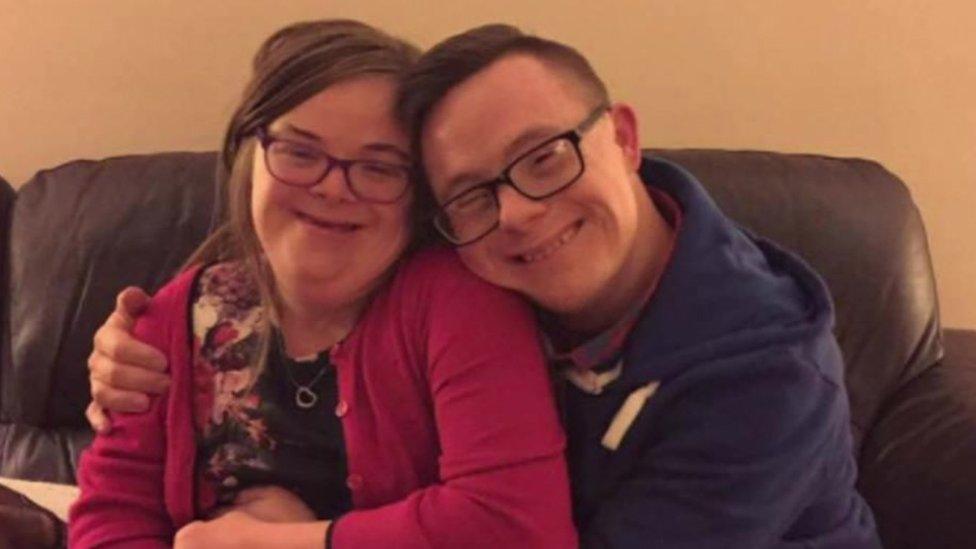
Heidi, pictured with her fiance James, is due to get married later this year
The average life expectancy for a person with Down's syndrome is between 50 and 60 - with a small number of people living into their seventies.
Heidi, 24, urged those expecting a child with the condition to "meet someone with Down's syndrome, and really get to know them.
"Don't be scared," she added. "See that there's a person behind [the extra] chromosome."

Follow the BBC's Victoria Derbyshire programme on Facebook, external and Twitter, external - and see more of our stories here.
- Published13 January 2020
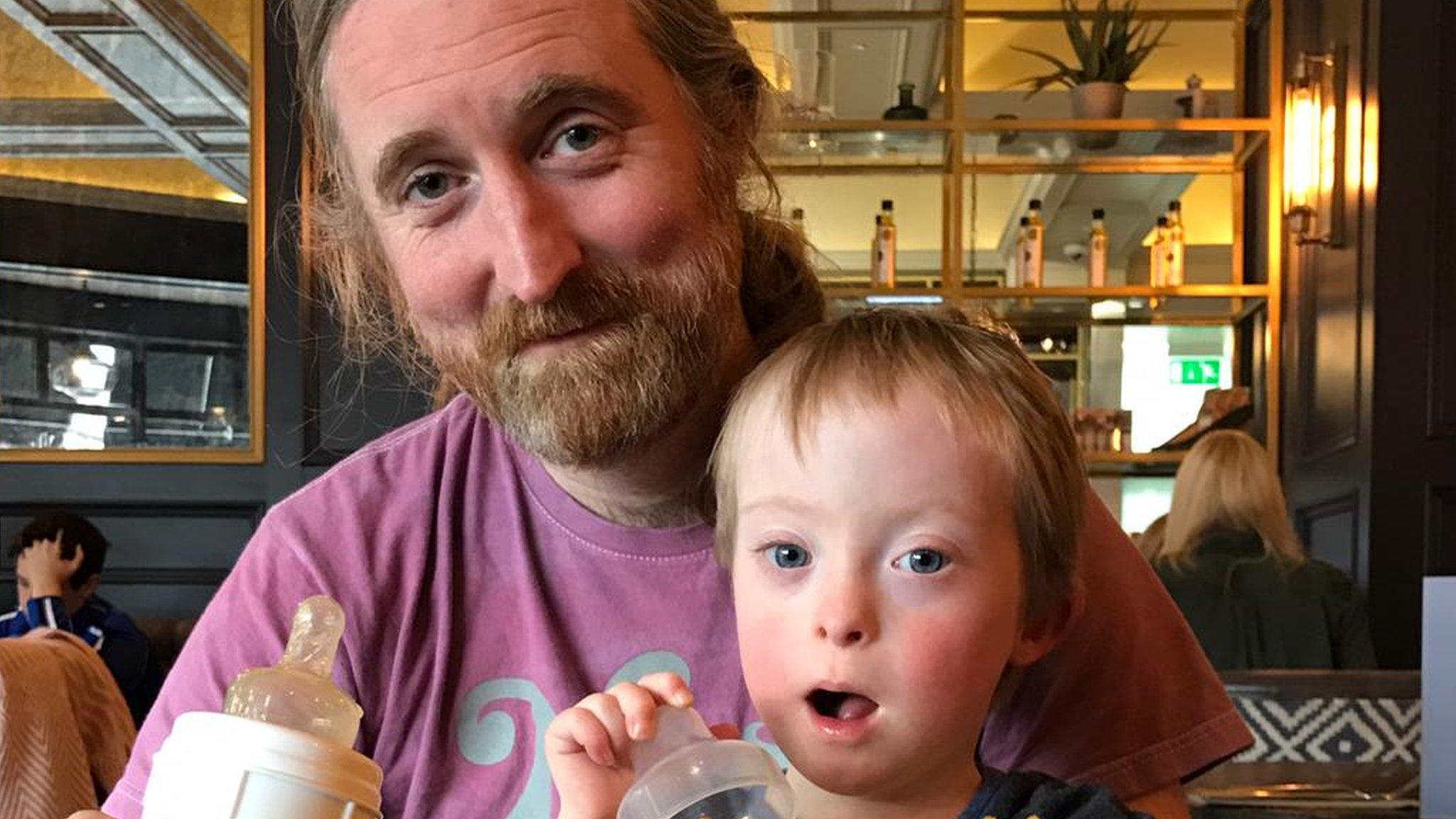
- Published9 October 2018
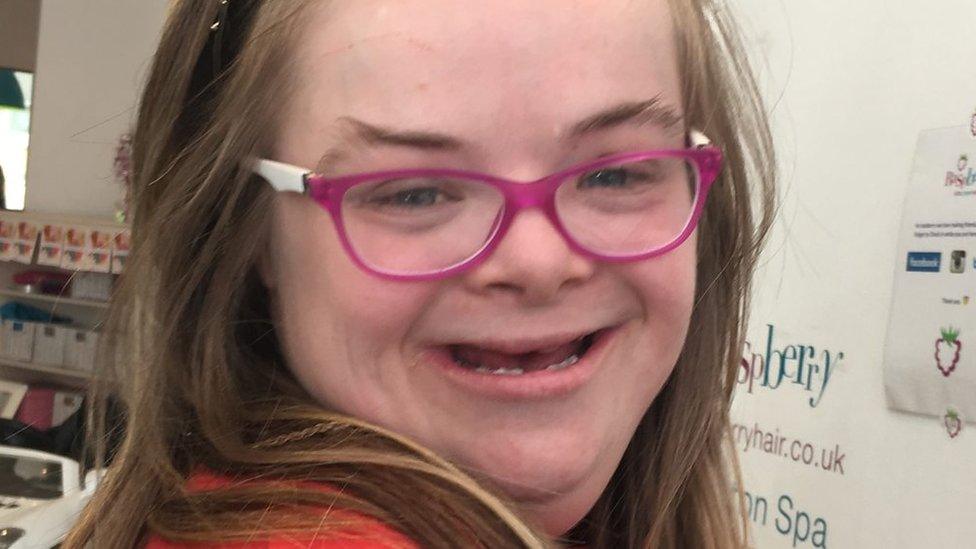
- Published13 January 2019

- Published17 January 2020
